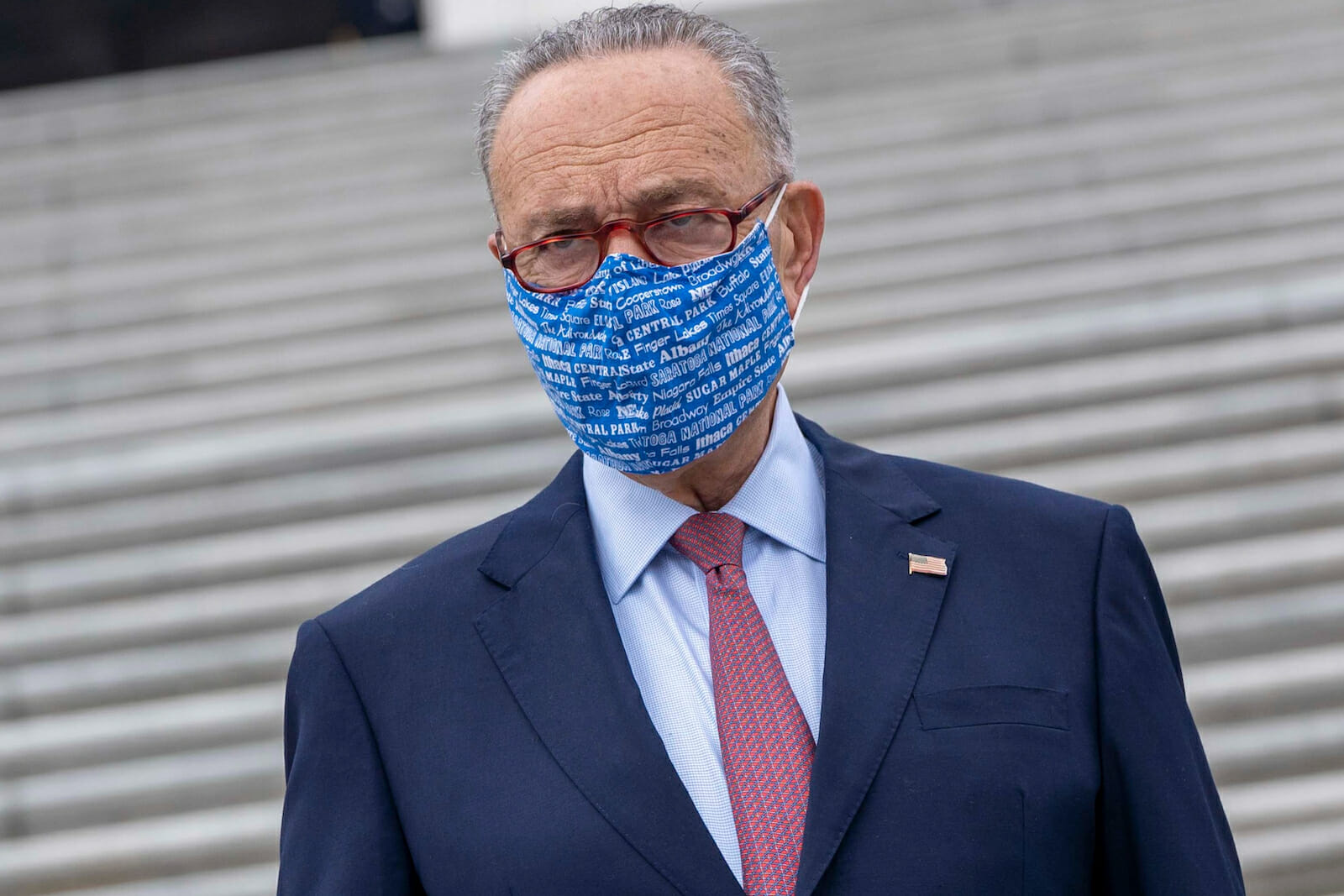
Politics
Yes, the For the People Act Is Sweeping, Expansive…and Constitutional
Amid the fanfare accompanying the passage of the American Rescue Plan last month and the ongoing hype campaign surrounding President Joe Biden’s proposed infrastructure spending package, another equally ambitious piece of legislation seems to be taking something of a backseat in the public discourse: H.R. 1, also known as the For the People Act. The Act, which was most recently passed by the House of Representatives at the beginning of March, is a sweeping bill that seeks to protect voting rights, end the prevalence of partisan gerrymandering, reduce the influence of big money in politics, and enact stricter ethics requirements for federal elected officials.
If that sounds like a lot, that’s merely because it is. Understandably, such a robust proposal—especially one that is co-sponsored by every Democrat in the House, all but one Democrat in the Senate, and not a single Republican—has proved politically divisive. Aside from predictable allegations from Republicans that the For the People Act is a partisan power grab, the central criticisms of H.R. 1 surround its alleged constitutional defects.
Particularly notable are frequent allegations that the Act unconstitutionally “federalizes elections,” usurping power for the federal government that has traditionally been reserved for the states. At first blush, there may appear to be some merit to this assertion. Just a little careful analysis, however, reveals these criticisms to be almost entirely unfounded.
Article I, Section 4, Clause 1 of the federal Constitution provides that “[t]he Times, Places and Manner of holding Elections for Senators and Representatives, shall be prescribed in each State by the Legislature thereof; but the Congress may at any time by Law make or alter such Regulations, except as to the Places of chusing Senators.” Unlike many clauses in the Constitution, this one (often referred to as the “Elections Clause”) is relatively straightforward. It establishes that both individual state legislatures and Congress have a role in regulating how federal Congressional elections are conducted. Most importantly, although it grants state legislatures the first say in regulating such matters, it unambiguously allows Congress to preempt those regulations with rules of its own.
It is a foundational principle of American federalism that the national government may not exercise authority unless the Constitution explicitly grants that authority to it. (State governments, on the other hand, possess something called the “plenary police power,” which generally allows them to act in the interest of their citizens’ health, safety, and welfare without any explicit grant of specific powers.) The Elections Clause is exactly the type of explicit grant of power Congress needs to enact new laws, and it provides more than enough authority for Congress to pass most of the crucial provisions of the For the People Act. Republican critics of the Act may be correct in asserting that it constitutes an exercise of authority by Congress in an area historically reserved for the states, but they are entirely incorrect in asserting that the power to regulate federal elections is exclusively reserved for the states.
Among other things, the For the People Act calls for national automatic voter registration, requires 15 consecutive days of early voting for federal elections, prohibits voter roll purging, and restores voting rights to convicted felons that have completed their sentences. Because each of these provisions is a requirement for federal elections, they each fall comfortably within the ambit of prescribing the “times, places, and manner of holding elections for Senators and Representatives.”
Courts have interpreted the “time, place, and manner” power granted to the states and Congress to be an expansive one, encompassing regulations of voter eligibility and the drawing of Congressional districts. This latter component is particularly important in the context of the For the People Act, since one of its central provisions is a requirement that states use independent redistricting commissions to draw new Congressional districts. Whether such a requirement would actually reduce gerrymandering, or whether redistricting commissions tend to draw fairer districts, are complex normative and empirical questions that I won’t bother to delve into here. Suffice it to say that, regardless of whether independent redistricting commissions represent good policy, a federal requirement that states use them is unquestionably constitutional.
In addition to the Elections Clause, it also bears mentioning that courts have interpreted the Fourteenth Amendment to protect the fundamental right to vote against undue burdens imposed by state laws. Section 5 of the Fourteenth Amendment grants Congress an explicit power to enact laws to enforce the provisions of the Amendment, including its protection of voting rights. This power, in conjunction with the Fifteenth Amendment, is what allowed Congress to pass such sweeping and transformative legislation as the Voting Rights Act of 1965. Relatively recent cases like Boerne v. Flores and Shelby County v. Holder remind us that Congress’s powers under the Fourteenth Amendment are not unlimited (most importantly, they can only be used remedially and cannot create new rights), but they nevertheless represent an additional arrow in Congress’s quiver of powers that can be used to pass legislation like H.R. 1.
Opponents of the For the People Act may be on their best footing in challenging the constitutionality of its campaign finance components. Most notable are provisions requiring super PACs to disclose the identities of their donors and compelling Facebook and Twitter to disclose the sources of money behind the political ads appearing on their platforms. These requirements could theoretically face some difficulties if they were challenged in court, considering the long line of Supreme Court precedents ranging from NAACP v. Alabama to McIntyre v. Ohio Elections Commission that look very unfavorably on forced disclosure laws and prohibitions of anonymous speech. Indeed, even the ACLU has been mildly critical of these provisions of the Act. Nevertheless, these disclosure requirements are almost certainly safe given the fact that similar requirements were upheld in McConnell v. FEC and—you knew it would come up eventually—Citizens United v. FEC.
It is not exactly a secret that our current Supreme Court is no great champion of voting rights protections. The decision in Shelby County made that fact abundantly clear, showcasing just how spectacularly out of touch the Court’s conservative majority is as it gutted key provisions of the Voting Rights Act. Given that today’s Court is even more conservative than the one that decided that case, it is not at all unreasonable to fret over the ultimate fate of H.R. 1 if it were passed into law (itself a deeply uncertain proposition) and challenged in court. The Tenth Amendment, for example, could provide enterprising judges with ammunition to call into doubt the constitutionality of a law like H.R. 1 that would insert the federal government into a policy area that has been traditionally handled by the states. But judges can’t ignore unambiguous text, even (and in most cases especially) conservative ones. And given the unambiguous power granted to Congress by the Elections Clause to enact laws precisely like the For the People Act, together with the role granted to the federal government by the Fourteenth Amendment as the ultimate protector of voting rights from infringement by the states, the question of the Act’s constitutionality is ultimately not much of a question at all.

